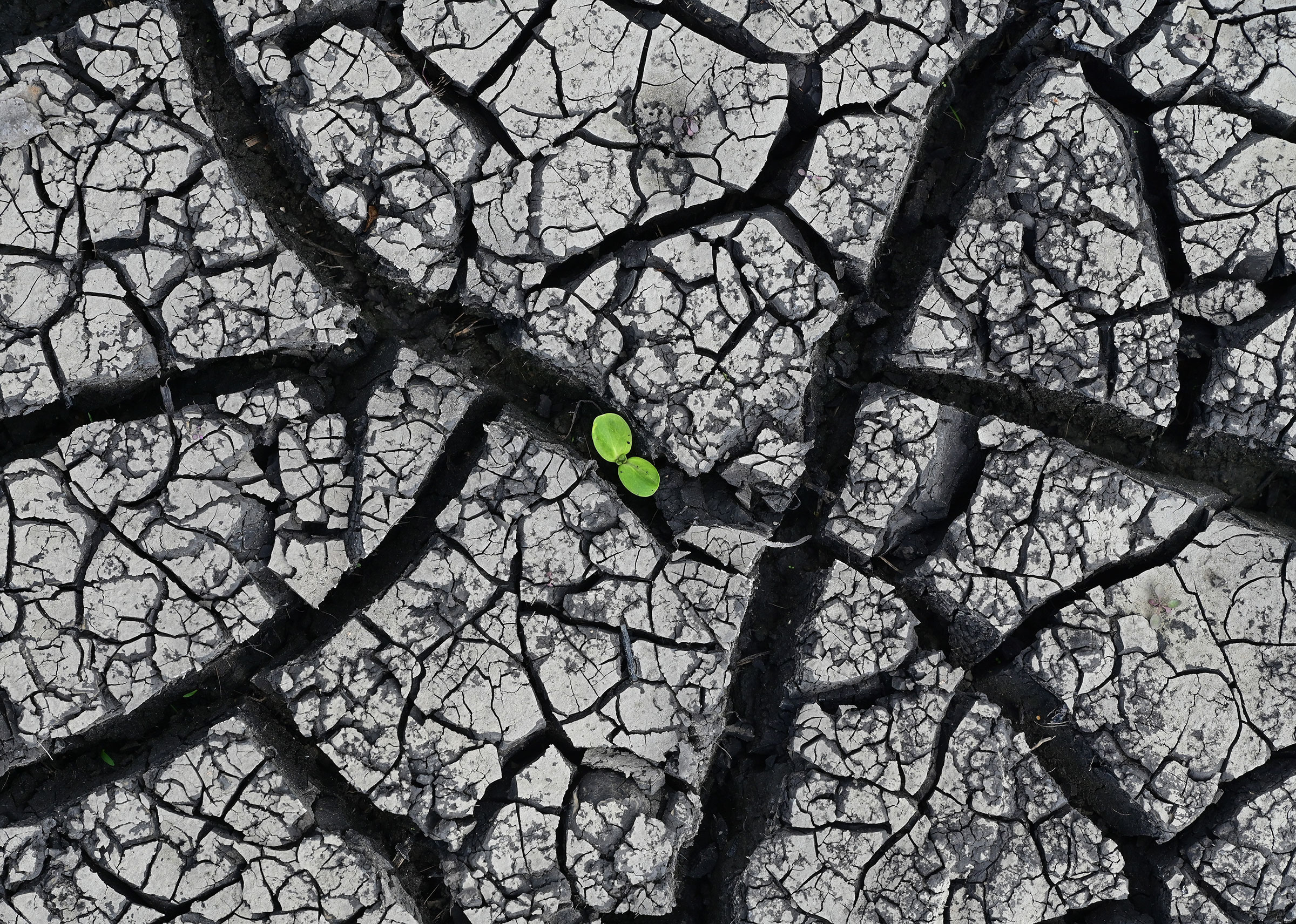When people hear the word extinction, they invariably think of dinosaurs. But we are now on the verge of soil extinction—the greatest crisis of our times.
Can soil ever turn extinct? Yes, it can. If you remove organic content (in the form of plant litter and animal waste) from soil, it turns into sand. This is called desertification. Conversely, if you add organic content to sand, it becomes soil. Soil extinction may be a relatively new term, but the process it describes has been unfolding over the past 100 to 150 years because of unsustainable agricultural practices. An acre of soil in the world is turning into desert every second. This is a statistic with grave consequences for all life on this planet.
The problem is that we treat soil as a mere resource, an inert substance into which we can pump chemicals. This is an unfortunate consequence of the fragmentation of human consciousness. We forget that soil is the largest living system we know. It is not dead matter; it is living earth. A teaspoon of fertile soil can contain, in some cases, more than 9 billion organisms. Nearly 60% of our body is microorganisms; less than half is from our parental genetics. If we were conscious of this, would we ever embark on such wanton ecocide?
Ninety-five percent of our food comes from soil. But studies show a tragic depletion in the nutrient value of vegetables worldwide. Americans are potassium-deficient, 88% are deficient in vitamin E, 67% in vitamin K, 52% in magnesium, 43% in vitamin A, and 39% in vitamin C, according to a study by the U.S. Centers for Disease Control and Prevention (CDC).
A weekly newsletter featuring conversations with the world’s top CEOs, managers, and founders. Join the Leadership Brief
If this is true of the world’s most affluent nation, consider the state of the rest of the world! Acute soil degradation contributes to lower crop yields—and even if you eat enough, your food may be devoid of nourishment. Research shows that some of the foods we grow are less nutrient-dense than they once were. The result: impending famine, future forced migrations, civil wars over food security, and considerably weakened forthcoming generations. How much longer before we awaken to the urgency of the problem?
People often ask, “But what about other environmental issues?” They are certainly important, but soil conditions are plummeting so rapidly that the problem could spiral out of control. Addressing soil could alleviate many other ecological issues, helping to reverse climate change and water scarcity. If the ozone-layer problem has been addressed with some success, it is because it was pursued with a single-point agenda. The same needs to happen with soil.
Conscious Planet—Save Soil is a global movement to change the narrative around soil. I have embarked on a crazy motorcycle journey across 27 countries, covering 30,000 km in 100 days, to meet with government leaders, influencers, and the general public; raise awareness; and recommend policy changes that ensure a minimum of 3% to 6% organic content in soil. The aim is to inspire more than 3 billion people, or 60% of the adult population, to urge their national leaders to support soil-friendly policies.
Read More: Scientists Grow Plants in Soil from the Moon. Lunar Farming Could Be Next.
At age 65, this expedition is no joyride! But I know the importance of staking one’s life to open doors. Recently, I initiated two movements—Rally for Rivers and Cauvery Calling—that have galvanized the support of 162 million people toward revitalizing India’s rivers and promoting tree-based agriculture. Individual efforts are commendable, but collective action is clearly the need of the hour.
We have not lost the fight yet. But we’re standing on the brink. If we act now, we can initiate the necessary policy changes and make a vital turnaround in soil health in the next decade. This is both a challenge and a privilege. Let ours be the generation that acted responsibly, that rescued the planet from its wanton and tragic project of self-sabotage. Save soil. Let us make it happen.
Sadhguru is a yogi and environmental advocate
- Why Biden Dropped Out
- Ukraine’s Plan to Survive Trump
- The Rise of a New Kind of Parenting Guru
- The Chaos and Commotion of the RNC in Photos
- Why We All Have a Stake in Twisters’ Success
- 8 Eating Habits That Actually Improve Your Sleep
- Welcome to the Noah Lyles Olympics
- Get Our Paris Olympics Newsletter in Your Inbox
